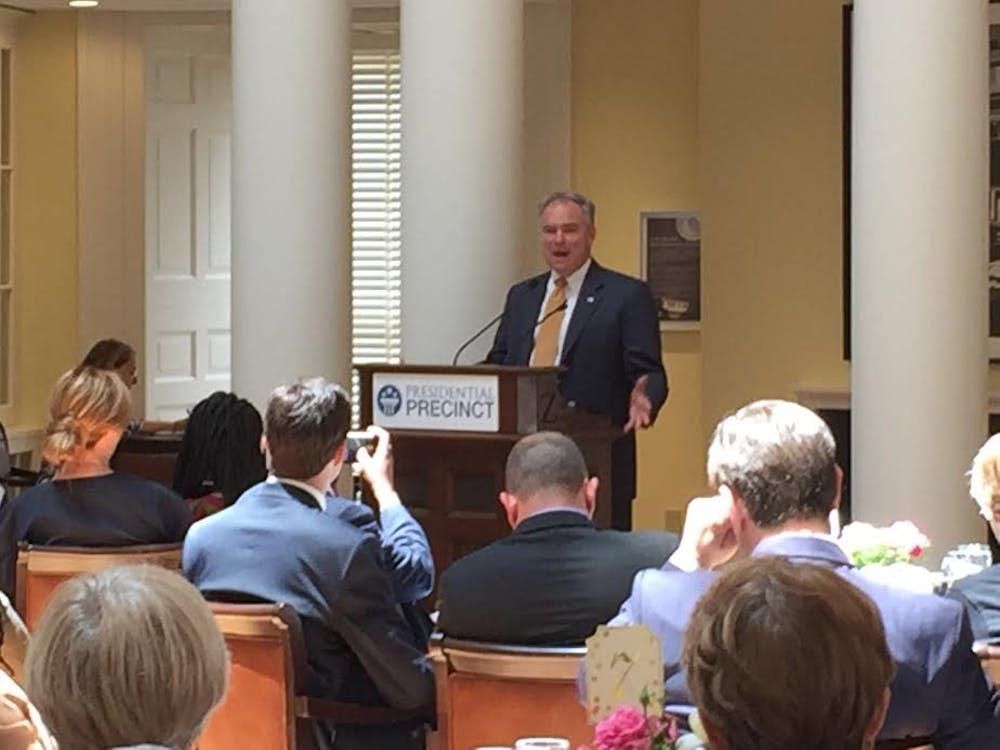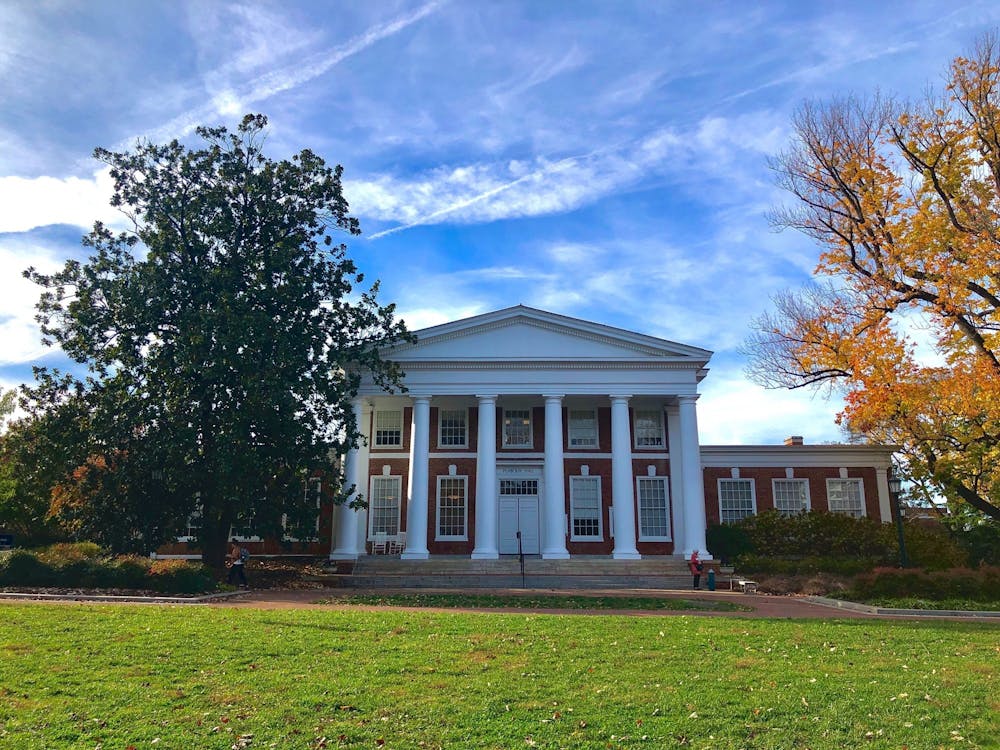Sen. Tim Kaine (D-Va.) was in Charlottesville for two events Monday. Kaine first hosted a roundtable event to discuss Medicaid cuts at Albemarle High School. Later, Kaine delivered the keynote address to welcome Mandela Washington Fellows at the Rotunda.
The roundtable discussion was focused on the effects Medicaid cuts would have on students, particularly students with special needs. It was an event where community members could speak with Kaine and voice their concerns while also hearing his.
Kaine said Medicaid is important to local students, although it is not commonly thought to be so.
“The proposed Trump budget plus the House healthcare plan would take a trillion three out of Medicaid over the next ten years and in Virginia 60% of Medicaid recipients are kids,” Kaine said. “Here’s about $700,000 that goes directly to Albemarle and Charlottesville Medicaid funding to help them provide medical services to children in schools … this is all jeopardized if we do this wrong.”
According to Kaine, Medicaid provides thousands of dollars of support to the Charlottesville area and much of that support goes to children. He said there are about 600,000 children in Virginia that receive varying Medicaid benefits — some require service for long periods of time, while others only receive Medicaid for a short period of time to help with a single issue.
“Some vary intensely and some for a little bit. It’s a very broad range,” Kaine said. “The ability to use Medicaid to help young people thrive and progress, [means] you can tailor is to their circumstance, but it’s a sizeable number.”
Kaine said one of the reasons he opposes the proposed cuts to Medicaid is because he believes cuts would not save money in the long run.
“There’s also the notion that if you cut Medicaid at the federal level, some might say ‘see, we saved some money,’ but it doesn’t necessarily save money if it just pushes the responsibility onto the shoulders of governors, mayors, county boards of supervisors, school boards, because raising local taxes might be what they would have to do to make up for it, in which case, there’s no real savings there,” Kaine said.
Eileen Stewart, the mother of a high school student with cerebral palsy, said Medicaid was essential to her family.
“My son has cerebral palsy,” Stewart said. “He can’t talk, he can’t walk by himself, he can’t do anything for himself. He has … doctors, he has medicine, hear wears special braces, he wears special underwear … we have private medical insurance but it doesn’t cover [it].”
Kaine later delivered an address at a luncheon for the Mandela Washington Fellowship for Young African Leaders.
The Mandela Washington Fellowship for Young African Leaders is a program sponsored by the State Department. It draws fellows from 18 African countries and provides 1,000 fellows the opportunity to study in the United States.
“This is a huge honor,” Kaine said. “This program accepts 1 out of 64…We know already an awful lot about you, how significant your leadership roles are. I congratulate you.”
Kaine spoke to a group of 25 fellows from the program who are hosted by the Presidential Precinct, a Virginia-based nonprofit group. The group will spend six weeks in Virginia visiting and studying a number of important landmarks, including the University.
Correction: The article previously misstated the name of the Presidential Precinct.






